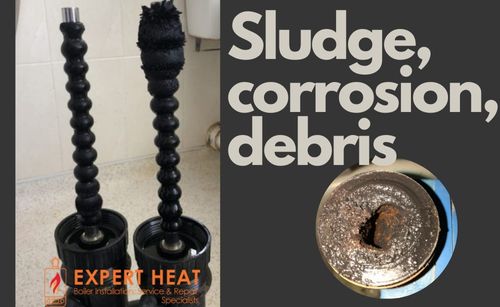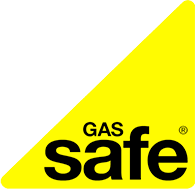What Is A Powerflush And Do I Need One?
What is a Powerflush?
A Powerflush is a comprehensive procedure aimed at cleansing and revitalising your central heating system. It involves the use of specialised equipment and chemical solutions to remove sludge, debris, and other contaminants that may have accumulated over time.
Do I Need a Powerflush?
While the necessity of a Powerflush may vary depending on the condition of your central heating system, there are several scenarios in which it could be highly beneficial, even if you have a new boiler installed.
Why Might You Need a Powerflush?
1. Residual Contaminants:
Despite the installation of a new boiler, residual contaminants such as rust, debris, and flux residue may still linger in your central heating system. These contaminants can hinder the performance of your boiler and compromise its efficiency over time.
2. Optimising Performance:
A Powerflush can significantly enhance the performance of your heating system by eliminating obstructions and restoring proper water circulation. This ensures that heat is distributed evenly throughout your home, preventing cold spots and maximizing comfort.
3. Preventing Future Issues:
By removing sludge and debris from your central heating system, a Powerflush helps prevent potential problems such as boiler breakdowns, pump failures, and radiator blockages. It also reduces the likelihood of costly repairs in the future.
4. Maximising Efficiency:
Over time, the accumulation of sludge and debris can impede the flow of water through your central heating system, leading to increased energy consumption and higher utility bills. A Powerflush removes these blockages, allowing your boiler to operate at peak efficiency and potentially saving you money on heating costs.
Common Questions About Powerflush
Can You Powerflush Microbore Pipework?
Yes, microbore pipework can be Powerflushed. However, it may require specialised techniques and equipment due to the smaller diameter of the pipes. A professional heating engineer can assess your system and determine the best approach for Powerflushing microbore pipework.
Will a Powerflush Cause a Leak?
When performed by a qualified and experienced heating engineer, a Powerflush should not cause leaks. However, if your central heating system is already compromised or if there are pre-existing issues such as corroded pipes or fittings, there is a possibility of leaks occurring. Proper inspection and preparation are crucial to minimise the risk of leaks during the Powerflushing process, however pipes under floors can’t really be inspected prior to a flush.
How Much Does a Powerflush Cost?
The cost of a Powerflush can vary depending on factors such as the size of your central heating system, the extent of contamination, and your location. It’s best to consult with a reputable heating company for an accurate quote tailored to your specific needs. But as a guide usually a Powerflush will cost between £400 – £800 depending on the size of your heating system, how many radiators you have and the type of boiler you have.
Do I Have to Have a Powerflush to Keep My New Boiler Warranty?
While some boiler manufacturers recommend or require a Powerflush as part of their warranty terms, it’s essential to review the warranty documentation provided by your boiler manufacturer to determine if a Powerflush is necessary to maintain warranty coverage.
My Radiators Aren’t Getting Hot?
If your radiators aren’t getting hot or have cold spots, it could indicate a buildup of sludge or debris in your central heating system. A flush of your system can help address this issue by removing the obstructions and restoring proper water circulation, allowing your radiators to heat up evenly.
The Radiators Don’t Warm My House?
If your radiators aren’t adequately warming your house, it could be due to various factors, including sludge buildup, airlocks, or pump inefficiency. A Powerflush can address these issues by flushing out contaminants and ensuring optimal performance of your central heating system.
My Hot Water Isn’t Getting as Hot?
A decline in hot water temperature could be related to a buildup of scale or sediment in your boiler or hot water cylinder. A system flush can help remove these deposits and therefore restore the efficiency of your hot water system, ensuring that you have consistently hot water when you need it.
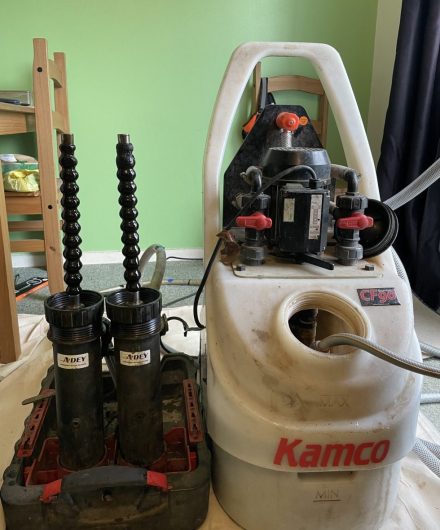
Understanding Sludge in Heating Systems: Causes, Implications, and Prevention
Sludge buildup in heating systems can wreak havoc on efficiency and performance, leading to issues like cold spots on radiators and increased energy consumption. It’s crucial to understand not only what sludge is and how it forms but also how other factors like air ingress contribute to its creation.
What is Sludge in a Heating System?
Sludge refers to a mixture of debris, rust, and other contaminants that accumulate within the pipes, radiators, and boiler of a central heating system over time. This accumulation can impede water flow, reduce efficiency, and cause various operational problems.
Causes of Sludge Formation:
-
Corrosion:
- When oxygen interacts with metal surfaces in the heating system, it leads to rust formation and corrosion. This process occurs over time and contributes significantly to sludge buildup.
-
Mineral Deposits:
- Hard water contains minerals like calcium and magnesium that can precipitate out of solution and deposit onto internal surfaces. These mineral deposits combine with other substances to form sludge.
-
Dirt and Debris:
- External contaminants, such as dirt and debris, can enter the heating system during installation or maintenance, settling within the system and contributing to sludge formation.
-
Biological Growth:
- In rare cases, microbial growth like bacteria and algae can proliferate within the system, particularly in stagnant water areas. This biological growth contributes to sludge accumulation and system fouling.
How Does Air Get into My Heating System?
Air can enter the heating system through various means, including:
-
Incomplete Bleeding:
- When the system is filled with water or undergoes maintenance, air pockets may remain trapped in radiators or pipes.
-
Leaks:
- Leaky connections or fittings can allow air to enter the system, especially in older or poorly maintained systems.
-
Expansion and Contraction:
- As water heats and cools within the system, air may be drawn in through expansion tanks or other openings.
Does Air Ingress Cause Sludge?
While air ingress itself doesn’t directly cause sludge formation, it can contribute to corrosion and oxidation processes within the system, which, in turn, lead to sludge buildup. Oxygen-rich water encourages the formation of rust and accelerates the breakdown of metals, increasing the likelihood of sludge formation over time.
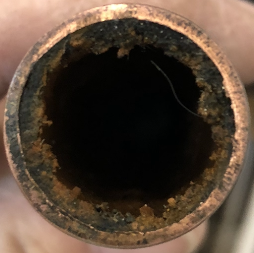
Preventing Sludge Formation:
-
Effective Water Treatment:
- Implementing proper water treatment measures, such as corrosion inhibitors and scale inhibitors, can help prevent sludge formation and corrosion within the system.
-
Regular System Maintenance:
- Regular flushing and cleaning of radiators and pipework can remove accumulated sludge and debris, preventing future buildup and maintaining system efficiency.
-
Addressing Air Ingress:
- Proper bleeding and venting of air pockets, as well as sealing leaks and ensuring system integrity, can help minimize air ingress and its potential contribution to sludge formation.
By understanding the interplay between factors like air ingress and sludge formation, homeowners and building managers can take proactive steps to prevent buildup and maintain the efficiency and longevity of their heating systems
Exploring Magnetic Filters: An Alternative to Powerflushing?
When facing the prospect of dealing with sludge and debris buildup in your heating system, you might wonder if there’s a simpler solution than a full Powerflush. One option that’s often considered is the installation of a magnetic filter. But can this device truly replace the thorough cleaning power of a Powerflush?
Understanding Magnetic Filters:
Magnetic filters are devices installed in the pipework of a heating system, typically close to the boiler. They contain a powerful magnet that attracts and captures metallic debris circulating within the system. As water flows through the filter, these particles are trapped, preventing them from causing further damage or buildup.
Benefits of Magnetic Filters:
-
Continuous Filtration:
- Unlike a one-time Powerflush, magnetic filters provide ongoing filtration, capturing debris as it circulates through the system. This can help prevent the buildup of sludge and prolong the life of your heating system components.
-
Minimal Disruption:
- Installing a magnetic filter is relatively quick and straightforward compared to a Powerflush, which involves flushing out the entire system. There’s minimal disruption to your heating system, and no need to drain down radiators or pipework.
-
Cost-Effective:
- Magnetic filters are often more affordable than a full Powerflush, making them an attractive option for homeowners looking to improve system efficiency without breaking the bank.
-
Compatible with New Installations:
- Magnetic filters can be installed alongside a new boiler or heating system, providing added protection from the outset.
Limitations of Magnetic Filters:
-
Limited Effectiveness:
- While magnetic filters are effective at capturing metallic debris, they cannot remove non-metallic contaminants like sludge, dirt, and scale. Over time, these non-metallic particles can still accumulate and impact system performance.
-
Not a Complete Solution:
- Magnetic filters are a valuable addition to a heating system but should not be seen as a substitute for periodic maintenance and cleaning. Over-reliance on a magnetic filter without proper maintenance can lead to issues down the line.
-
Existing Sludge:
- If your heating system already has significant sludge buildup, a magnetic filter alone may not be sufficient to address the problem. In such cases, a Powerflush may still be necessary to thoroughly clean the system and restore efficiency.
So while magnetic filters offer a convenient and cost-effective way to combat metallic debris in your heating system, they are not a comprehensive solution on their own. For optimal performance and longevity, it’s recommended to combine the installation of a magnetic filter with periodic maintenance and, if needed, a professional Powerflush to remove non-metallic contaminants and sludge buildup.
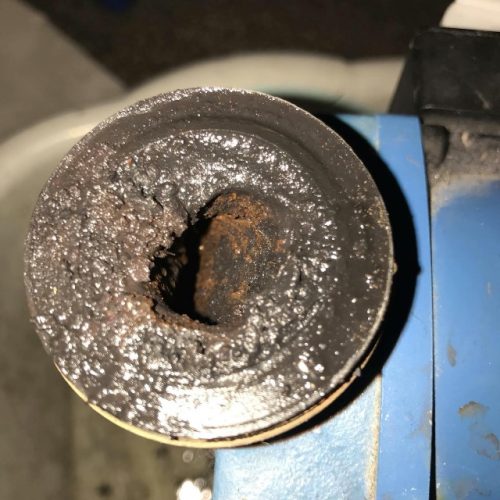
So to sum up while a Powerflush may not always be necessary, it can offer significant benefits in terms of performance, efficiency, and longevity for your central heating system. If you’re experiencing any issues with your heating or hot water system, it’s advisable to consult with a professional heating engineer to determine if a Powerflush is the right solution for you.
Expert Heat: Your Trusted Partner in Central Heating Maintenance and Optimisation, all heating services offered. Gas safe registered

